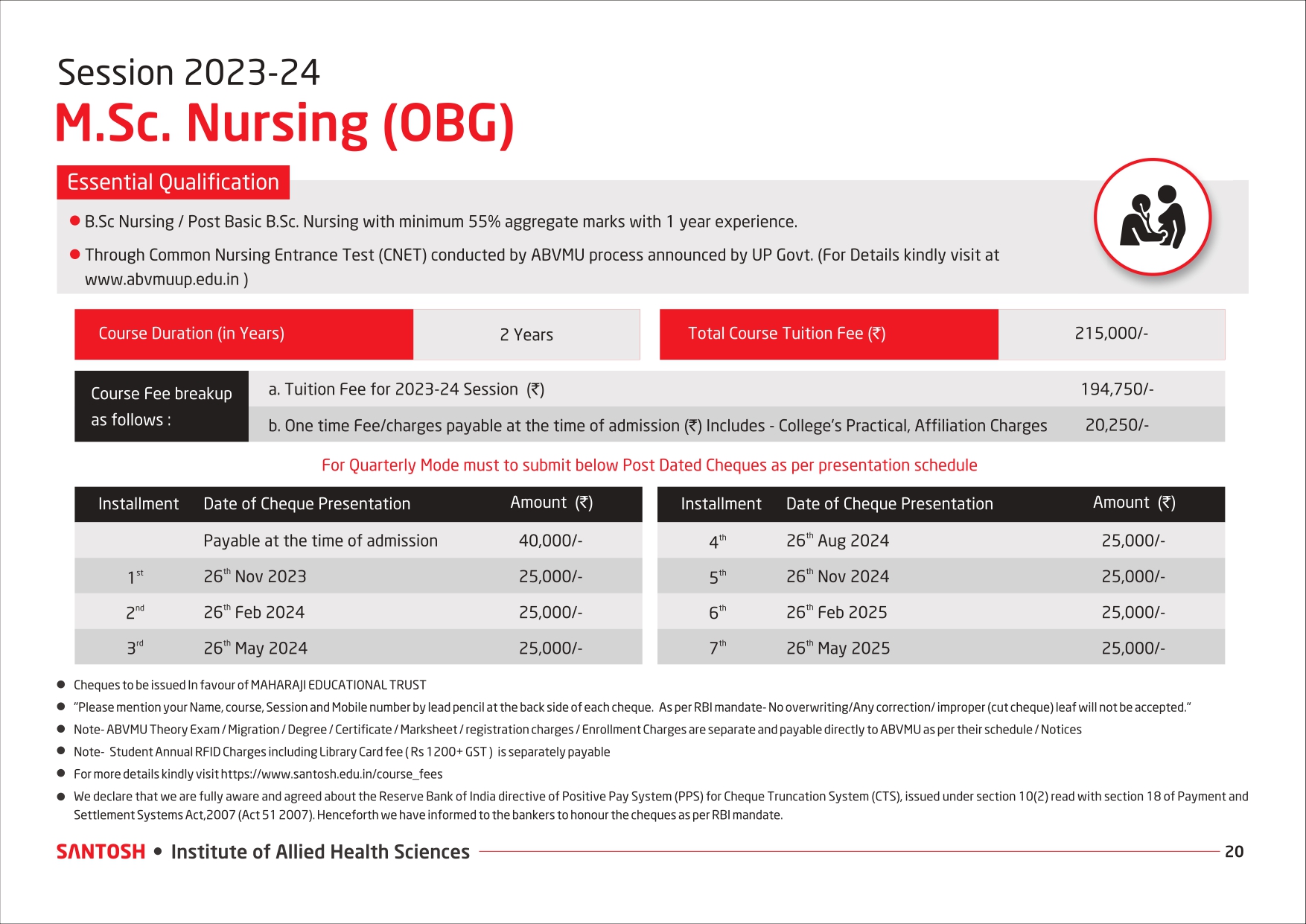Are you considering pursuing a career in nursing but unsure about the associated costs? Nursing course fees can vary significantly depending on the institution, location, and program type. Understanding these fees is crucial for making informed decisions about your education and future career. In this article, we will explore everything you need to know about nursing course fees, including factors influencing costs, financial aid options, and tips for managing expenses. Whether you are a high school graduate or a working professional looking to switch careers, this guide will help you navigate the financial aspects of nursing education.
Nursing is a noble profession that plays a vital role in healthcare systems worldwide. As the demand for qualified nurses continues to grow, many individuals are drawn to this rewarding career path. However, the cost of education can be a significant barrier for aspiring nurses. From tuition fees to additional expenses like books, uniforms, and clinical supplies, understanding the full financial picture is essential. This article aims to provide a comprehensive overview of nursing course fees, helping you plan your educational journey effectively.
Throughout this guide, we will delve into various aspects of nursing course fees, including detailed breakdowns, comparisons between different types of programs, and advice from industry experts. By the end of this article, you will have a clear understanding of what to expect financially and how to make your nursing education more affordable. Let’s begin by exploring the key factors that influence nursing course fees.
Read also:How To Find And Use Somali Telegram Link For Community Engagement
Table of Contents
- Factors Influencing Nursing Course Fees
- Types of Nursing Programs and Their Costs
- Additional Costs Beyond Tuition
- Financial Aid and Scholarships
- Tips for Managing Nursing Course Expenses
- Comparing Nursing Course Fees Across Countries
- Expert Advice on Affording Nursing Education
- Long-Term Benefits of Investing in Nursing Education
- Frequently Asked Questions About Nursing Course Fees
- Conclusion and Next Steps
Factors Influencing Nursing Course Fees
Nursing course fees are influenced by several key factors that prospective students should consider before enrolling in a program. Understanding these factors can help you make informed decisions about your education and financial planning.
Type of Institution
The type of institution offering the nursing program significantly impacts the cost. Public universities generally have lower tuition fees compared to private institutions. For example, public colleges in the United States often charge in-state students significantly less than out-of-state or international students. Private nursing schools, while often more expensive, may offer specialized programs or smaller class sizes that could enhance the learning experience.
Program Level
Nursing programs are available at various levels, including diploma, associate degree, bachelor’s degree, and advanced degrees like master’s or doctoral programs. Generally, higher-level programs such as bachelor’s or master’s degrees tend to have higher tuition fees due to the extended duration and advanced coursework involved. Diploma and associate degree programs are typically shorter and less expensive but may limit career advancement opportunities.
Geographical Location
The location of the institution also plays a crucial role in determining nursing course fees. Institutions located in urban areas or regions with a higher cost of living often charge more for tuition and other expenses. Additionally, international students may face higher fees compared to local students, especially in countries like the UK or Australia.
Types of Nursing Programs and Their Costs
Different nursing programs cater to various educational and career goals, each with its own cost structure. Below, we outline the most common types of nursing programs and their associated fees.
Diploma Programs
Diploma programs are typically offered by hospitals and provide foundational nursing education. These programs are usually the shortest and most affordable option, with tuition fees ranging from $5,000 to $15,000. However, diploma programs may limit career opportunities compared to degree-based programs.
Read also:Josh Heupel Daughter Accident A Comprehensive Look At The Incident And Its Aftermath
Associate Degree in Nursing (ADN)
An Associate Degree in Nursing (ADN) is a two-year program offered by community colleges and some universities. Tuition fees for ADN programs generally range from $10,000 to $30,000, depending on the institution and location. This program is a popular choice for students seeking a quicker path to becoming a registered nurse (RN).
Bachelor of Science in Nursing (BSN)
A Bachelor of Science in Nursing (BSN) is a four-year program that provides comprehensive nursing education. Tuition fees for BSN programs can range from $40,000 to $100,000 or more, depending on the institution. While more expensive, a BSN often opens doors to better job prospects and higher salaries.
Additional Costs Beyond Tuition
While tuition fees are a significant part of nursing education costs, there are several additional expenses that students should consider. These costs can add up quickly and impact your overall financial planning.
Books and Supplies
Nursing students are required to purchase textbooks, uniforms, stethoscopes, and other clinical supplies. On average, these costs can range from $1,000 to $3,000 per year, depending on the program and institution.
Clinical Fees
Many nursing programs include clinical rotations as part of the curriculum, which may involve additional fees for background checks, immunizations, and liability insurance. These fees can range from $200 to $1,000 annually.
Living Expenses
Living expenses, including housing, food, transportation, and personal needs, can vary significantly based on location. Students attending schools in urban areas may face higher living costs compared to those in rural areas.
Financial Aid and Scholarships
Financing nursing education can be challenging, but there are numerous financial aid options and scholarships available to help students manage costs.
Federal Student Aid
In the United States, students can apply for federal student aid through the Free Application for Federal Student Aid (FAFSA). This aid includes grants, loans, and work-study programs that can significantly reduce the financial burden of nursing education.
Scholarships
Many organizations, including hospitals, nursing associations, and private foundations, offer scholarships specifically for nursing students. Examples include the Tylenol Future Care Scholarship and the AACN Scholarship for Undergraduate Nursing Students.
Employer Tuition Assistance
Some healthcare employers offer tuition assistance or reimbursement programs for employees pursuing nursing education. This benefit can be an excellent way to offset costs while gaining valuable work experience.
Tips for Managing Nursing Course Expenses
Managing nursing course expenses requires careful planning and budgeting. Here are some practical tips to help you reduce costs and make your education more affordable.
Create a Budget
Developing a detailed budget can help you track your expenses and identify areas where you can save money. Include tuition, books, supplies, living expenses, and any additional costs in your budget.
Buy Used Books
Purchasing used textbooks or renting them can significantly reduce costs. Many online platforms and campus bookstores offer affordable options for acquiring course materials.
Apply for Multiple Scholarships
Applying for multiple scholarships increases your chances of receiving financial aid. Focus on scholarships that align with your background, interests, or career goals.
Comparing Nursing Course Fees Across Countries
Nursing course fees vary widely across different countries, influenced by factors such as the education system, healthcare demand, and economic conditions. Below, we compare nursing course fees in several countries.
United States
In the U.S., nursing course fees can range from $10,000 for associate degree programs to over $100,000 for bachelor’s degree programs at private institutions. Public universities often offer lower fees for in-state students.
United Kingdom
In the UK, nursing students may benefit from government-funded tuition for undergraduate programs. However, international students face higher fees, often exceeding £15,000 per year.
Australia
Australian nursing programs typically cost between AUD 20,000 and AUD 40,000 annually for domestic students. International students may pay significantly more, depending on the institution.
Expert Advice on Affording Nursing Education
To provide valuable insights, we reached out to industry experts and financial advisors for advice on affording nursing education.
Dr. Emily Carter, Nursing Educator
"Start by researching all available financial aid options, including grants, scholarships, and employer assistance programs. Many students overlook these opportunities, which can significantly reduce their financial burden."
John Smith, Financial Advisor
"Creating a realistic budget and sticking to it is crucial. Track your expenses and prioritize essential costs to avoid unnecessary debt during your education."
Long-Term Benefits of Investing in Nursing Education
While nursing course fees may seem daunting, the long-term benefits of investing in nursing education are substantial. Nursing is a high-demand profession with excellent job security, competitive salaries, and opportunities for career advancement.
Job Security
The demand for qualified nurses continues to grow globally, ensuring strong job prospects for graduates. Nurses are essential to healthcare systems, making them highly sought after by employers.
Salary Potential
Nurses with advanced degrees or specialized certifications often earn higher salaries. For example, nurse practitioners and clinical nurse specialists can earn six-figure salaries in many countries.
Career Flexibility
Nursing offers diverse career paths, from clinical roles to research, education, and administration. This flexibility allows nurses to pursue opportunities that align with their interests and goals.
Frequently Asked Questions About Nursing Course Fees
Here are some common questions and answers about nursing course fees to help clarify any remaining doubts.
Are There Any Hidden Costs in Nursing Programs?
Yes, some programs may have hidden costs such as clinical fees, lab fees, and technology fees. It’s essential to review the program’s fee structure carefully before enrolling.
Can I Work While Studying Nursing?
Yes, many nursing students work part-time jobs to support themselves financially. However, balancing work and studies can be challenging, so it’s important to manage your time effectively.
Conclusion and Next Steps
Understanding nursing course fees is a critical step in planning your education and career. By considering factors such as program type, location, and additional costs, you can make informed decisions about your financial investment. Additionally, exploring financial aid options and implementing cost-saving strategies can help make your nursing education more affordable.
As you embark on your journey to becoming a nurse, remember that the benefits of this rewarding profession far outweigh the initial costs. We encourage you to share your thoughts or questions in the comments below and explore other articles on our site for more valuable insights. Your future in nursing awaits!

